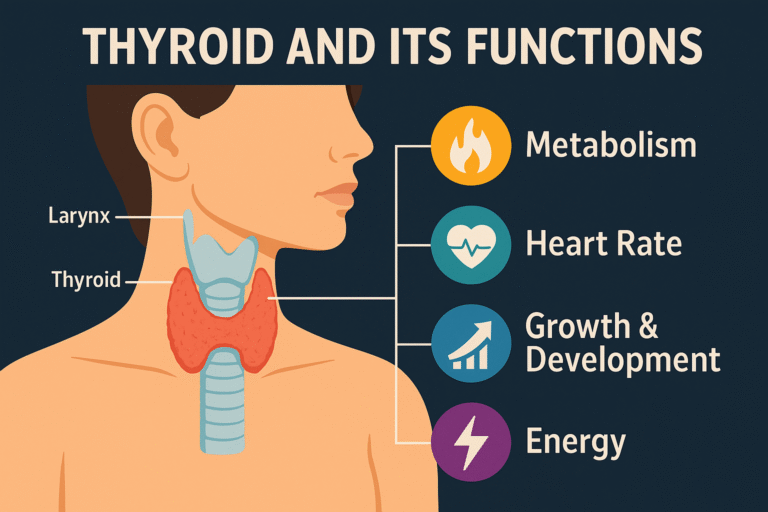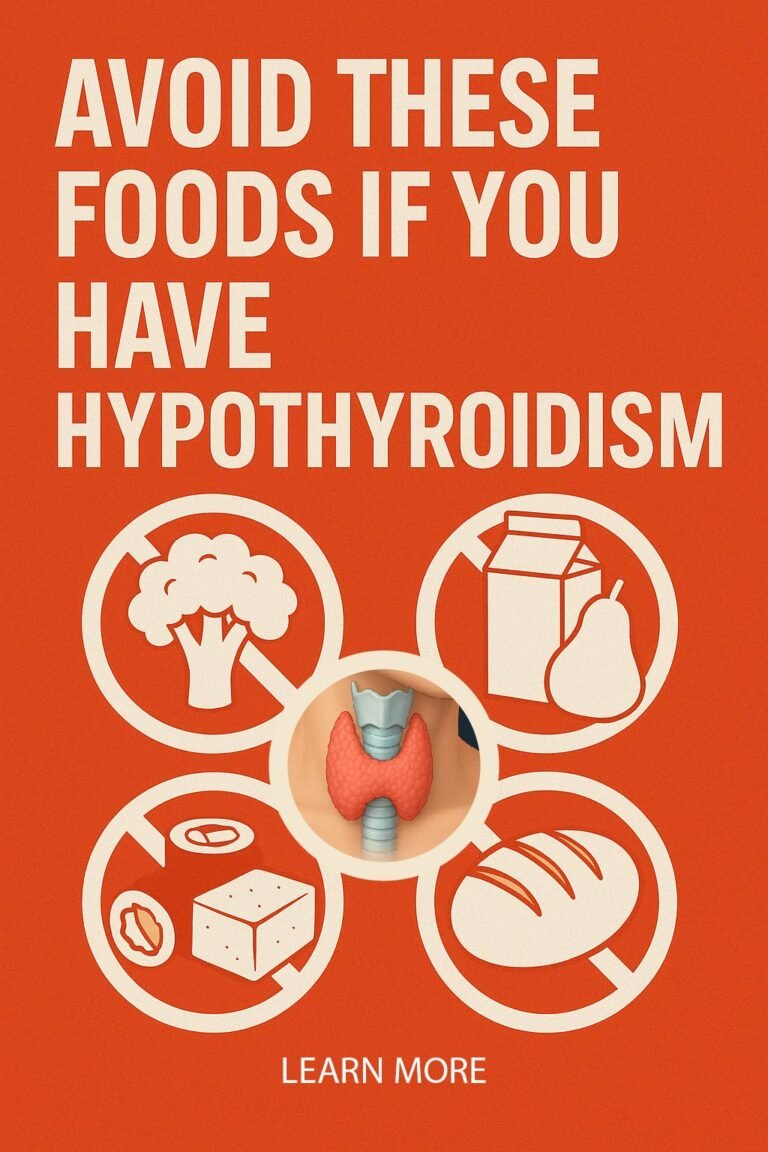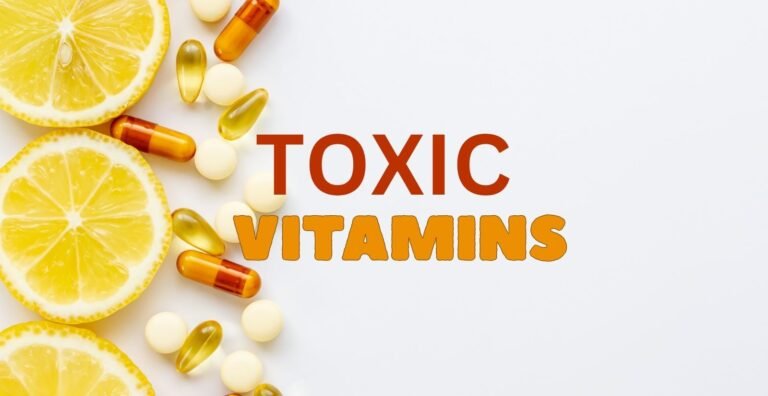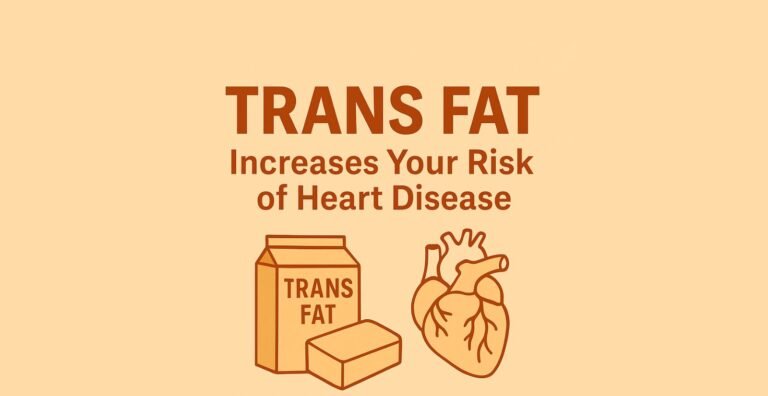Top Health & Wellness Product Reviews with Exclusive Sale Prices!
Avoid These Foods If You Have Hypothyroidism: A Guide for Better Thyroid Health

If you have hypothyroidism, you understand how challenging it can be to manage the condition and feel your best. This common thyroid disorder, where the thyroid gland underproduces hormones, affects metabolism, energy levels, and overall well-being. While medication like levothyroxine is a key part of treatment, what you eat plays an essential role in supporting your thyroid health.
In this article, we’ll discuss which foods to avoid when managing hypothyroidism, and how certain foods can interfere with your thyroid function. By being mindful of your diet, you can improve your health and support your thyroid function effectively.
1. Soy-Based Products
Soy is rich in compounds known as goitrogens, which can interfere with the thyroid’s ability to absorb iodine—a key mineral essential for the production of thyroid hormones. This means that foods like tofu, soy milk, soybeans, and edamame might hinder your thyroid function. While the effect of soy on thyroid function is often minor for most people, it’s a good idea to consume soy in moderation.
What to do instead: Opt for dairy, nuts, and seeds for protein sources that don’t impact thyroid health.
2. Cruciferous Vegetables (When Consumed Raw)
Cruciferous vegetables like broccoli, cauliflower, cabbage, and kale contain goitrogens as well, which can interfere with iodine absorption in the thyroid. These vegetables are incredibly healthy, but consuming them in raw form can be problematic for those with hypothyroidism.
What to do instead: If you love these veggies, try cooking them! Heat can neutralize the goitrogens and make them safe to eat.
3. Gluten-Rich Foods
People with hypothyroidism, especially those with Hashimoto’s disease (an autoimmune thyroid condition), are more likely to have gluten sensitivity or celiac disease. Gluten, a protein found in wheat, barley, and rye, can exacerbate autoimmune responses and increase inflammation in the body, which could worsen thyroid symptoms.
What to do instead: Consider switching to gluten-free grains such as quinoa, rice, and gluten-free oats. Many gluten-free alternatives are now available in supermarkets.
4. Processed Foods
Processed foods, which are often high in unhealthy fats, refined sugars, and additives, can increase inflammation and disrupt hormone balance, including thyroid hormones. Additionally, many processed foods are low in essential nutrients that your body needs to support thyroid function, such as iodine, zinc, and selenium.
What to do instead: Focus on eating whole foods like fruits, vegetables, lean proteins, and healthy fats. These will not only support your thyroid but also contribute to overall wellness.
5. Fried and Fatty Foods
Consuming excessive amounts of fried or high-fat foods can lead to weight gain, a common issue for those with hypothyroidism due to the metabolic slowdown associated with the condition. High-fat foods also contribute to inflammation, which can hinder your thyroid’s ability to function properly.
What to do instead: Opt for healthy fats like those found in olive oil, avocado, nuts, and seeds. These fats can help manage weight and support hormone production.
6. Sugary Foods
Hypothyroidism often causes fatigue, and consuming high-sugar foods can give you a temporary energy boost, followed by a crash. This cycle can leave you feeling more tired and sluggish. Additionally, excessive sugar intake can lead to weight gain and increased blood sugar levels, which may exacerbate hypothyroidism symptoms.
What to do instead: Choose natural sweeteners like honey or stevia when you need a sugar fix, and prioritize nutrient-dense foods to stabilize your energy levels.
7. Caffeinated Beverages
Caffeine, found in coffee, tea, and energy drinks, can interfere with the absorption of thyroid medication. It can also contribute to dehydration, which can make symptoms like fatigue and brain fog worse. If you rely heavily on caffeine, it may be worth reassessing how much you’re consuming.
What to do instead: Drink herbal teas like ginger or chamomile, which are soothing and won’t interfere with thyroid function. If you need caffeine, aim for moderation.
8. Dairy (In Some Cases)
Dairy products like milk, cheese, and yogurt may interfere with the absorption of thyroid medications, especially if consumed in large amounts. Dairy can also cause inflammation in some individuals, potentially worsening symptoms of hypothyroidism.
What to do instead: If dairy is essential for your diet, aim to consume it in moderation and allow some time between taking your thyroid medication and eating dairy.
Final Thoughts: Supporting Your Thyroid Health
When you have hypothyroidism, it’s important to support your thyroid function through diet and lifestyle choices. While certain foods can hinder thyroid health, many foods can support it as well. Focus on consuming nutrient-rich whole foods, such as:
-
Iodine-rich foods (like seafood, eggs, and dairy)
-
Selenium-rich foods (such as Brazil nuts and sunflower seeds)
-
Zinc-rich foods (like pumpkin seeds and legumes)
Always speak with your healthcare provider or a registered dietitian before making major dietary changes, as they can provide personalized guidance tailored to your specific health needs.
By being mindful of the foods you consume and avoiding those that may impair thyroid function, you can help manage your hypothyroidism more effectively and improve your overall quality of life.








